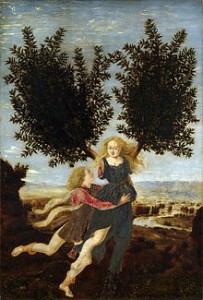[contextly_auto_sidebar id=”oHcTuy4aEjunKWqhD4mC4hqre93rSFli”]
Let me catch my breath a second and direct CultureCrash readers to my Salon piece on trigger warnings on university “trigger warnings,” the poetry of Ovid, and my fears about Fox News.
Of my recent Salon work, this seems like the one most relevant to ArtsJournal readers. Bottom line is, How do we regard the violence, rape, heartlessness and overall nastiness in Green, Roman and Old Testament sources. One thing I did not have time or room to mention is that classical culture (and other early myths, legends and folklore like those in early Norse and Celtic literature, the Germanic tales recounted by the Brothers Grimm, etc.) drives not only what we’ve come to call “high culture” but all kinds of genre fiction (detective writer Ross Macdonald, science-fiction scribes like Robert Silverberg) and postmodern meldings (the stories and novels of Neil Gaiman  and Kelly Link.)
and Kelly Link.)
Of course, trying to document all the places myth and folklore lead is foolish — they’re the basis of so much.

Hi, Scott,
I’ve found Culture Crash fascinating and revealing in the spread of its investigation; some of these things were things I’d noticed, but others weren’t. What you’re describing is the destruction of the cultural manufacturing industry, suppliers, distributors… And yes, of course they are disappearing, too. But the damage is wider than we thought.
I used Culture Crash, among sources, as part of an argument on a small blog where I occasionally talk to myself in TNR 12-point. (The post in question is called Living in Fifth Century Gaul.)
It’s an interesting question. My mother used to ask it and seem very uncultured. She often hit the nail on the head…
I think there are lots of answers, or factors in a conglomerate answer. Partly it depends on who “we” are.
I laughed out loud once when I read a Letter to the Editor in the Adelaide Advertiser* from a man who was disgusted, if not outraged, to see the ABC airing I, Claudius. He expected higher-toned things from our national broadcaster, programming about “our glorious heritage.” (That’s a direct quote. I’ve treasured it ever since.)
Literature is elevated gossip & always has been. The elevation is the problem in seeing ancient cruelty for the cruelty it is. The rape of the Sabine women is glossed over as something that guaranteed the peopling of the seven hills and made possible the eventual revolutionary use of concrete and startlingly numerous books of jurisprudence; it is only when someone of the same social level calls it out – Euripides, The Trojan Women – that cruelty can be called by its true name and still be “high culture.”
(The academy / religion is also part of the problem; college or the church is the most common setting for finding or seeing or reading these works – the context is a filter when it’s not also actively a sermon of one sort or another. Literature studied in prison is a rivettingly different thing…
There have always been punishments for regarding the crimes of the upper class as crimes and not as lovable quirks, or wondrous tales of no immediate relevance – And “high culture” was a culture produced for consumption largely by the upper class in Greek & Roman times. The mediaeval clergy were custodians of the Bible, and in that sense then the Bible was also a “high culture”; only selections were passed on to those who prayed, paid & obeyed.)
Other perspectives – women’s studies, for example – calling out cruelty as cruelty are often regarded by what’s left of the cultural establishment as dodgy at best and downright rancourous and invalid at worst; they’re also occasionally named as contributory factors in the shattering of culture as we knew it. (Who are “we”? What is “culture”?)
“High culture” of the past has been on our syllabi because of the depth of its perceptions & the level of its execution. That perspective also has served to make pointing out the cruelty of the cruelty seem – naive, uncultured, boorish.
Complex mixes of power, social capital or lack of it, economic class, gender, place in history, context of learning, at least, factor into an ability to call out cruelty/crime in high culture. But often, also, cruelty/crime is what the work in question is about — the outrageousness, and what people or the gods did or didn’t do about it.
==
*The morning broadsheet of my hometown, where Murdoch’s first paper, The News, was the afternoon tabloid,
The best way to handle to the cruelty and violence of classical literature and the bible is to present it as it is and not to sugar coat it. If we don’t show students the truth it will cause more damage to them in the long run. It is also important to give students to discuss it. When I grew out of the children’s bible and started reading the real bible, I was greatly disturbed by the violence. For example I was never was told when I was in Sunday school what happened to the the people of Jericho, but when I read the story for myself in the real bible the violence of that story and other stories in the bible changed my view of religion.
And early Norse and Celtic literature, the Germanic tales recounted by the Brothers Grimm, the Greeks, the Chinese …? The violence there?